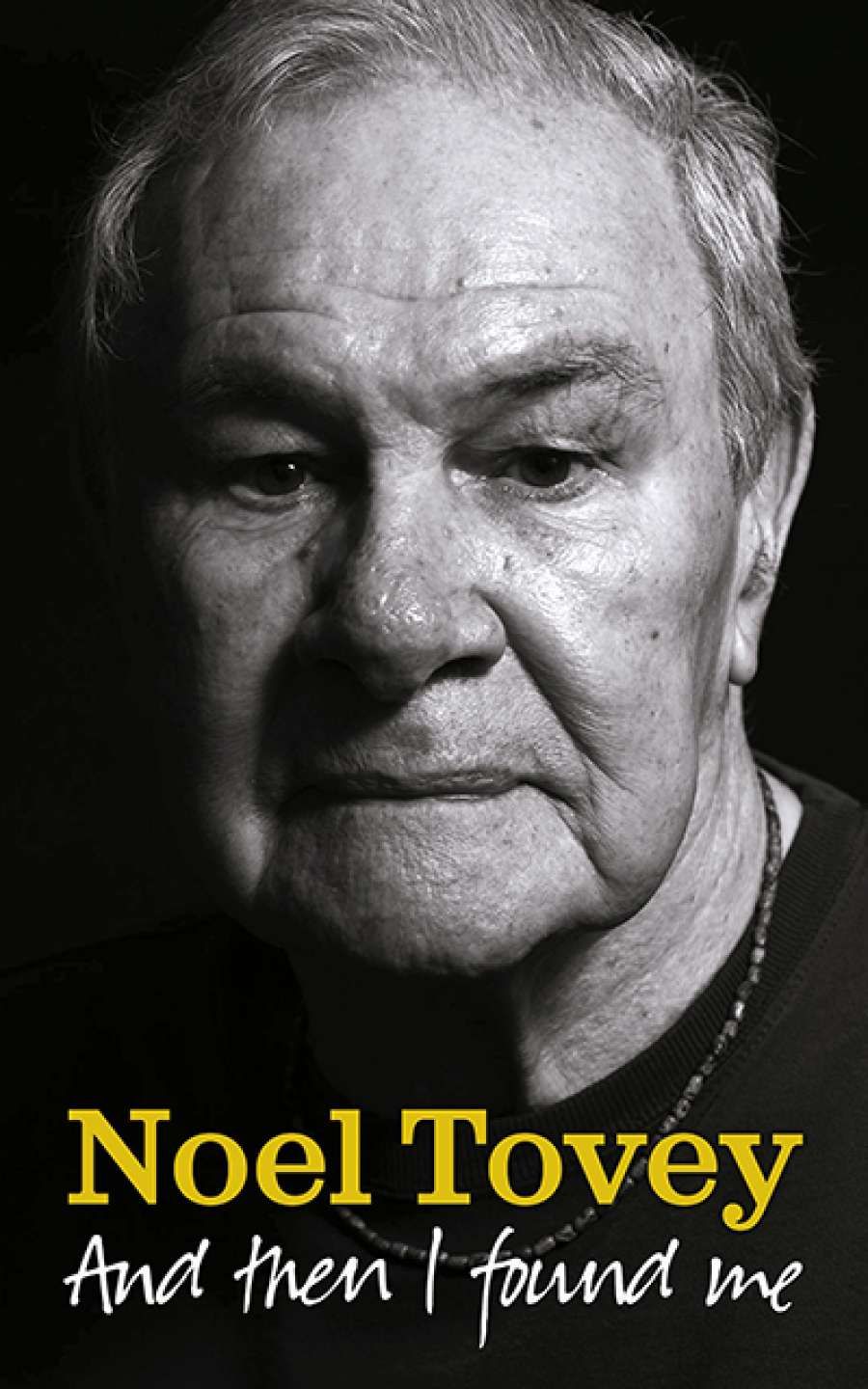
- Free Article: No
- Contents Category: Memoir
- Custom Article Title: Dennis Altman reviews 'And Then I Found Me' by Noel Tovey
- Book 1 Title: And Then I Found Me
- Book 1 Biblio: Magabala Books $33 pb, 241 pp, 9781925360479
Memoir is a difficult form; what we find fascinating about our own lives is not necessarily what the reader is seeking. Little Black Bastard is full of insights into Melbourne in the 1940s and 1950s, and charts territory not necessarily familiar to many of us. When Tovey moves to London, his career flourishes and he moves in more exalted circles, but he adds little to our understanding of the social milieux in which he moved. There is much detail here about various theatrical productions, above all The Boyfriend, in which he toured to several continents, and Oh! Calcutta! After appearing in the London première in 1970, he brought it to Australia, only to be defeated by local censorship.
The Boyfriend took Tovey to South Africa during the period of apartheid. Of the segregated toilets he encountered on arrival he writes: ‘In that instant finally, I understood what apartheid meant and why I had denied my own black inheritance for so many years.’ This could have been the pivotal point of the book, but Tovey reveals a complex ambivalence in exploring the pains of racism and his own indigeneity. It is difficult to understand his enthusiasm for Margaret Thatcher, who opposed Malcolm Fraser’s attempt to impose sanctions on South Africa. Did Tovey ever reflect on this when canvassing for Thatcher in Fulham?
And Then I Found Me reveals that the process of ‘finding me’ has been a lifelong journey, marked by similar inconsistencies and doubts. In 1986, the year both his partner and mother died, Tovey writes of visiting Uluru and feeling ‘for the first time in my life ... that I was part of this land and this country’. Four years later Tovey moved back to Australia, where he has had a distinguished career supporting Indigenous arts. Yet in Little Black Bastard he wrote: ‘Now that I am seventy there is no need for me to know the complete history of my Aboriginality. Curiosity is for the young.’
Parallel to coming to terms with his Aboriginality is Tovey’s discovery of gay politics and his support for AIDS organisations. He was present at the Stonewall Inn on the night that street riots following a police raid saw the beginnings of the gay liberation movement in New York: ‘This night would prove to be life changing for all of us; it was our Armageddon.’ But if Stonewall was ‘life changing’ the book does little to explain why. It is not until the onset of AIDS and the illness of his partner that there is any sense of involvement with the movement that exploded across the Western world after 1969.
Too much of the book is a chronology of events and people: far too many people. I was reminded of Jim Sharman’s refusal to include an index in his memoir (Blood and Tinsel, MUP 2008); he wanted people to read the book rather than just check their names. Only occasionally does Tovey give us more than a glimpse of the parade of famous people: do we really need to know that he saw Greta Garbo on a bus, or that he met Orson Welles?
 Noel Tovey with Janette Miller in The Boyfriend (1968)Name-dropping works when it reveals something about either the writer or the celebrity, and there are interesting, if fleeting, insights in his encounters with Robin Maugham and Roman Polanski. Overall, though, the roll-call of encounters is rather like walking down Hollywood Boulevard; one sees the stars on the pavement but little more.
Noel Tovey with Janette Miller in The Boyfriend (1968)Name-dropping works when it reveals something about either the writer or the celebrity, and there are interesting, if fleeting, insights in his encounters with Robin Maugham and Roman Polanski. Overall, though, the roll-call of encounters is rather like walking down Hollywood Boulevard; one sees the stars on the pavement but little more.
Tovey, like many authors, writes partly to examine himself. The most interesting sections are the personal, in particular the troubled relationship with his partner, Dave, who died from AIDS, and with his own daughter, Felicity, who died a few years later from an overdose. In seeking to balance these stories of his intimate life with the glamour of the theatre and antiques worlds of London And Then I Found Me doesn’t always succeed.
Like the best of memoirs, Tovey has laid the foundations for what I hope will be a future project, a serious biography of an Australian whose life reveals much about the hidden injuries of racial and sexual prejudice, and the struggle to surmount them.


Comments powered by CComment